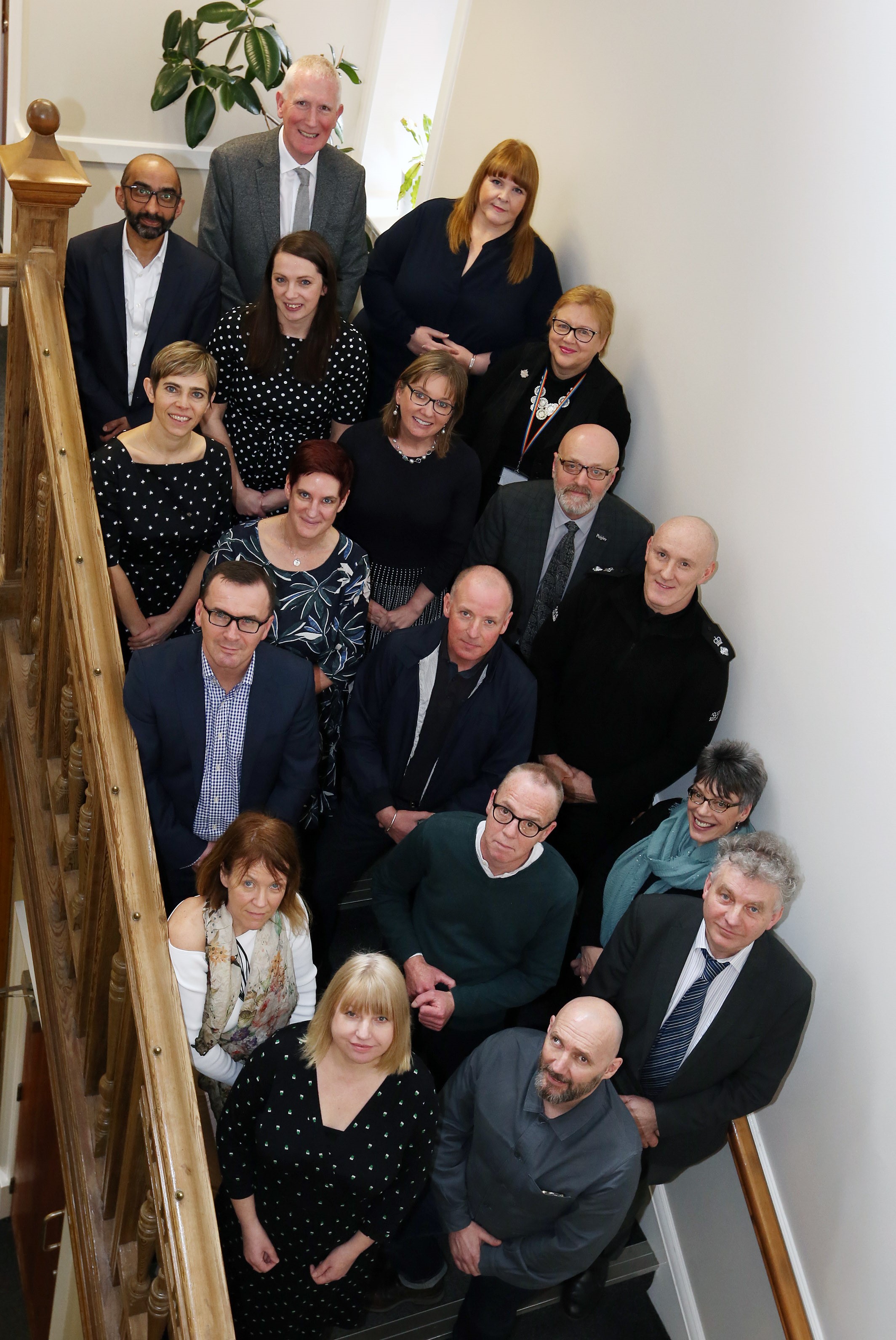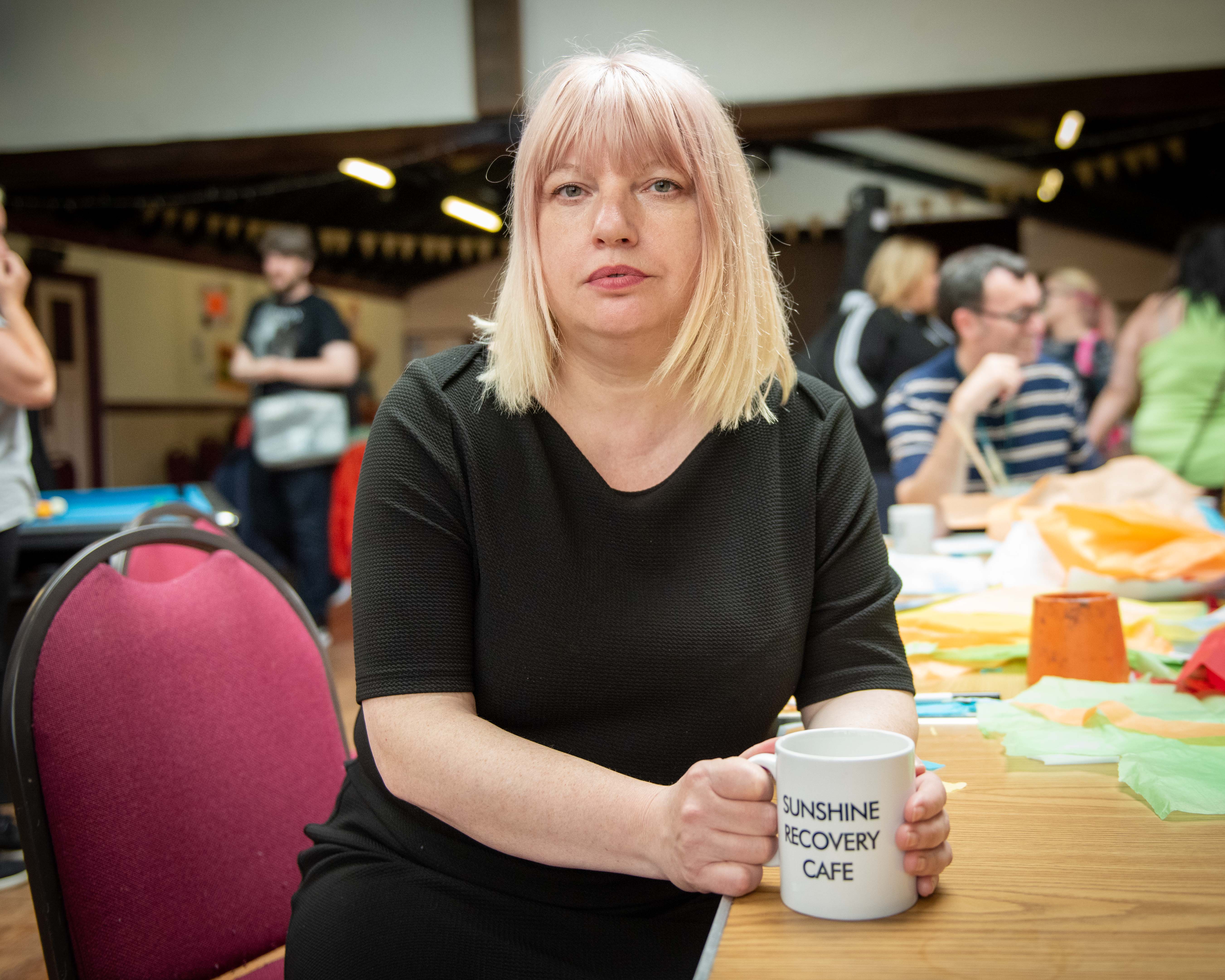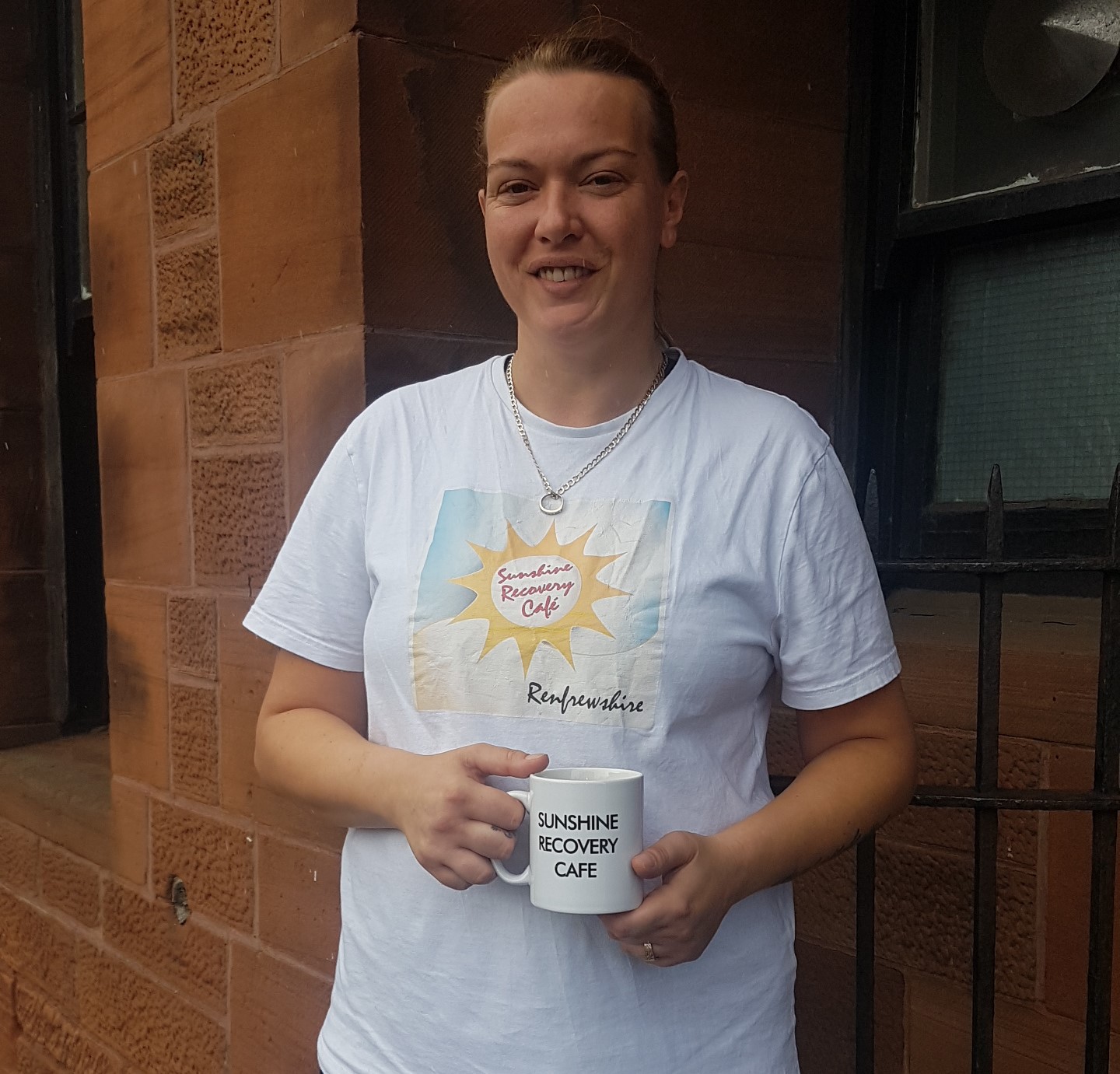Praise for Paisley Shawl Collection
November 5, 2019Diane Mitchell Music School
November 5, 2019Renfrewshire Community Planning Partnership’s Alcohol and Drugs Commission – one of the first of its kind in Scotland – is working to build a true picture of alcohol and drug use across Renfrewshire to help improve life outcomes for people in our communities.

Since its inception in March this year, the Commission has discussed the impact that alcohol and drug use has on individuals and families, and members have made recommendations about how partners can work together to take a fresh approach to tackling alcohol and drug use.
At the outset, Commission members agreed to support those with the highest need who are suffering the most severe disadvantage. In the meetings which have followed, the Commission – which comprises key figures from across health and social care, housing, justice, third sector and higher education – has discussed how we currently support people affected by alcohol and drug use; our services across prevention and early intervention; recovery; the impact of trauma; and how we engage with children and young people.

One of the most important parts of the work of the Commission continues to be listening to the voices of those with lived experience: talking to service users and people in recovery.
To hear these voices, Commission members have visited Renfrewshire services including the Sunshine Recovery Café, the Renfrewshire Men’s and Women’s Groups, Renfrewshire Family Support Group, and Renfrewshire Adolescent Drug and Alcohol Resource (RADAR).
Lead officer for the Commission, Laura McIntyre, said: “The sessions that Commission members have had with local groups and organisations and staff are really what this Commission is all about – listening to those who know what it’s like to live with or support people who are experiencing issues with Alcohol and Drugs.

“Local organisations like The Sunshine Recovery are fantastic, and through the Commission we are recognising the need for everyone in Renfrewshire to work together to support recovery and to build strong relationships with each other.
“As we move into 2020, it’s exciting to see possible recommendations emerging, with a huge opportunity for Renfrewshire as a whole to come together to positively support recovery, and to improve the life chances of local people.”
Before the end of this year, the Commission will continue to review how services are operating across Renfrewshire and consider how best to reach people most in need of support, before reporting on its findings in early 2020.
Recovery case study
Voice of lived experience is vital in tackling drug and alcohol use, says Paisley mum in recovery
A Paisley mum believes listening to the real-life experiences of people affected by alcohol and drugs is integral to the work being done by the Renfrewshire Alcohol and Drugs Commission.
Lorraine, committee treasurer at the Sunshine Recovery Café in Paisley, used alcohol and drugs for more than 15 years before turning her life around.
The mum-of-two was in primary six when she started smoking cigarettes and by the time she was in first year at high school, she was smoking hash and taking acid.
At 14 she started going to ‘unders’ nights before meeting up with her older friends, taking ecstasy, and heading out to clubs.
She fell pregnant at 15 and had a termination, which caused her life to spiral out of control.
She said: “The termination was the turning point for me.
“At 16, I ended up in a homeless unit in Renfrew but was kicked out when I started smoking heroin.
“A friend told me that to make the pain go away, I should take more of it, so it just became a cycle.”
Even after technically dying in the operating theatre, she kept using.
She said: “I woke up in hospital one morning and had no idea how I got there.
“My mum told me that she got a call saying her daughter had taken a drug overdose and was going to die. I was completely out of it. They had to resuscitate me and give me adrenalin and I ended up on life support.
“But as soon as I got out of hospital, I started using again.
“When I look back, I know there was no real reason for me to be doing it. I just enjoyed the feeling of not having to worry about things.”
At 21, she started injecting heroin, while taking 200 Valium a day and smoking crack cocaine.
But at 26, she realised she wanted to change.
She said: “I just started to grow up a wee bit. Everyone I knew was going to jail.
“My friends started dying and I realised that I didn’t want that for myself. I wanted to have a life.
“People talk about their friends from years ago but I can’t as so many of mine are dead.”
Lorraine received support from Renfrewshire Drug Service where she would meet her key worker weekly to talk about how she was feeling and her plans for moving forward.
She also used the Cactus service when her addiction was active and she had pending court charges.
Two years after being drug free and on methadone, Lorraine became pregnant. The Family Matters service helped her reduce her methadone dosage throughout her pregnancy so that it had significantly reduced by the time her first son was born.
Lorraine got back into work around three years ago when one of the Family Matters team told her about the Scottish Drug Forum’s Addiction Worker Training Project. She applied for the training and thanks to two successful paid placements at Turning Point Scotland and the RCA Trust, she completed her SVQ 2 in Health and Social Care.
Lorraine’s mum tragically passed away just as she was finishing her placement, and she struggled to adjust to life without her.
One year later, Lorraine contacted Colin Turner at the Sunshine Recovery Café, who offered her a voluntary position, which led onto a committee secretary post and role as treasurer.
She said: “My mum was my best friend. I’m very proud that she got to see me make it through to the other side and to meet my two boys.
“I didn’t think I would be employable due to my past. Renfrewshire services provided me with fantastic support and were a huge part of my recovery.
“The Sunshine Recovery Café is my second home. I love the people there – everyone is in recovery and everyone is supporting each other through it.
“I know that I will always be in recovery but that feels normal to me.
“If I hadn’t been through it all, I wouldn’t be the person I am now.”
Lorraine is pleased that the Renfrewshire Alcohol and Drugs Commission has been set up and has no doubt that hearing from people – and family members – who are living with the impact of alcohol and drug use will be a vital part of how Renfrewshire moves things forward.
She said: “It’s so important that we talk about these issues and bring them out into the open. Everyone is affected by addiction and mental health but some people still have a fear of talking about it.
“I hope that the work of the Commission will encourage services to share information so that we can work together to improve lives.”
Cllr Jacqueline Cameron blog – look back on first six months of the Commission
Over the past few meetings, it has been good to see how enthusiastic the Commission members are about our aims – and while everyone has their own specific area of interest, it feels very much like we are a united group with a common goal. Commission meetings are alive with debate, discussion and ideas, and I have my work cut out as a Chair to ensure everyone’s voice is heard; which is a very positive problem to have.
Many of us have met with staff, service users and their families. I have found this a truly eye-opening, at times emotional, and wholly uplifting experience. Not only has this given us as Commission members an opportunity to get to know each other, it has provided us with a chance to hear first-hand from those with lived experience, their families and the staff who support them. What came through to me most was how well informed and engaged family members were on national strategy and policy, and that there role is very much a caring one that should be supported. The dedication of staff to provide a respectful, supportive service has been demonstrated in our meetings and I think frontline staff really benefitted from the opportunity to make their views heard.
What I took most from the meetings was that everyone commented on the stigma faced by people using drugs, particularly. It was saddening to see how much the words that people use, hurt; words that so easily trip off the tongue when people only see the addiction and not the person. It is clear that people would like to see a robust campaign to tackle this stigma, in the way that we have approached the stigma of mental ill health. I think this will be a challenge but I would like to see Renfrewshire at the forefront of facing this head on. I was so grateful for service users allowing us as guests into their forums: at times I felt like I was invading their safe space but by the end of each session, we had all opened up to each other, which was both humbling and moving.
Our next few meetings are crucial as we will be setting out our recommendations – the tangible outcomes that we said from the start we wanted to achieve. We have a wonderful facilitator in Professor Phil Hanlon, who keeps us on track, to ensure the discussion and debate moves in a direction where we make decisions and look at how it will change practice in Renfrewshire.
The Commission has many skilled members and we are lucky to have them. Many sit on the national Drugs Deaths Task Force, including Professor Catriona Matheson who chairs the national taskforce, so we have a direct link to what’s happening in terms of approaches to tackling drug and alcohol use at a national level.
I look forward to learning what our recommendations for the future will be, and to hearing how we will continue to make lives better for people and their families living with drug and alcohol use across Renfrewshire.



